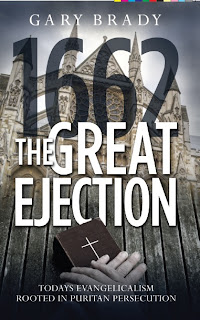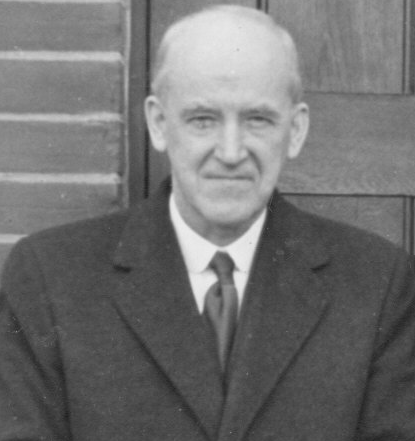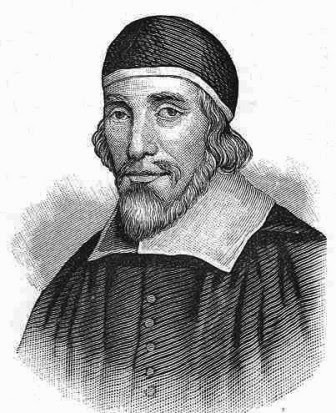 |
| St Peter ad vincula, Coggeshall, Essex |
In his 19th century Annals of Coggeshall the Congregationalist minister Bryan Dale has a chapter on Nonconformity which begins with a section on Ejected Ministers. He introduces it saying
Whenever laws were ordained contrary to conscience and the word of God, Nonconformity became a necessity for those who would obey God rather than man. It existed accordingly where the least scope was allowed for freedom of thought; and every attempt to bring the laws of the state into harmony with the individual conscience, and to silence its voice, alike failed.
During the twenty years which preceded 1662 there were placed in the parish churches men, of whom the least that can be said is that they were faithful pastors and able preachers. All of them were ultra-protestant in doctrine; many were in favor of Presbyterianism or a modified Episcopacy; and many were Independents. Charles II. was restored under most solemn engagements "that no man should be molested for his religion;" but as soon as the Restoration was effected all these were put aside.
First of all (1660) three hundred ministers were ejected from their livings to make room for the restoration of such as had been sequestered, and without regard to the character or competency of the latter. Then all the objections
urged against the re-establishment of unmodified
Episcopal authority and the Book of Common Prayer,
were overruled, and an Act was passed, which required
each minister who had not been ordained by Episcopal
hands to be re-ordained, and to declare publicly his
unfeigned assent and consent to all and everything
contained in the Book of Common Prayer, as now set
forth,* etc.; and on neglect or refusal pronouncing
him ipso facto deprived of all his spiritual promotions.
Unable, without disregarding the supreme claims of
conscience, to comply with such requirements, above
two thousand ministers** ceased to minister in the
Established Church, from Bartholomew Day, 24th
August, 1662. Another shade was thus added to the
previous darkness of this day,*** by the privation and
suffering into which these men were driven. The
Conventicle Act was afterwards passed, forbidding
more than five persons besides the family to meet for
religious worship, under severest penalties.
About this time the plague visited this country, and carried off great numbers of people in this neighbourhood. It does not appear to have been severe in this town, if it prevailed at all. At Braintree, on the contrary, 600 persons died within a short period; and in the vestry of that parish a memorial on parchment, containing the names of charitable contributors towards the distress, mentions
"The Inhabitants of Coggeshall — £35."
Several of the ejected ministers ventured into vacated pulpits, to preach to the excited people. The Five-Mile Act, however, forbade them to come within five miles of any place where they had previously ministered, or of any borough or corporate town. Great numbers of Nonconformists were fined and imprisoned; but meetings were secretly held. When the Conventicle Act was revived in 1669, enquiries were sent to every parish concerning such meetings; and the returns, partial and imperfect, are preserved at Lambeth.
"Coggeshall. Hard to be suppressed. (Ministers) Mr. Sammes. Mr. Lowry."
The next entry is:—
"Wethersfield. Mr. Cole, now in Chelmsford Goal."
In 1672 Charles II issued his Declaration of Indulgence, and above 3,000 licences for religious worship were taken out.
"License to John Sammes, to be a congregational teacher in the house of John Croe at Coggeshall.—1st May 1672."
"License to Thomas Lowry, to be a congregational teacher in his house at Coggeshall, in Essex."
"The house of Thomas Lowry in Coggeshall to be a Meeting House."
"The house of Matthew Ellistone at the Grange in Little Coggeshall to Matthew Ellistone.—13th May."
"William Grove, in his house at Coggeshall, licensed to he a congregational teacher.—May, 1672."
"Thomas Millaway, of Coggeshall, Essex, licensed to be a general congregational teacher.—22nd July, 1672."
The Nonconformists in this place were too numerous to meet in one spot. The Test and Corporation Acts immediately followed the Indulgence; afterwards came other persecutions. It does not appear, however, that in this town, beyond having their assemblies broken up, the Nonconformists suffered greatly; for the magistrates, and others upon whom the execution of the laws devolved, were themselves of the same mind as the offenders. The attempt of James II to bring back the country to Roman Catholicism, led to the Glorious Revolution of 1688, and the Act of Toleration: but the Act of Uniformity and other laws against Nonconformists were still continued.
* The alterations made were of the following nature:— The Book of Bell and the Dragon inserted in the Calendar — the words "rebellion and schism" in the Litany —" Priest" and "Deacon" substituted for "Minister" — Absolution ordered to be pronounced by the priest alone — kneeling at the Lord's supper — Charles styled "our most religious King." The Nonconformists, many of whom were in favor of a Liturgy, had many objections to the prescribed forms. Among other things they said, "We cannot in faith say that every child that is baptized is regenerated by God's holy spirit." "The words of the burial service cannot in truth be said of persons living and dying in open and notorious sins. These words may harden the wicked and are inconsistent with the largest rational charity."
** William Rastrick, in a MS. Index, (date 1734) in a library at Lynn, gives 2257 names.
*** The massacre of 10,000 French Protestants in 1572.





















.jpg/220px-Thomas_Watson_(Puritan).jpg)
